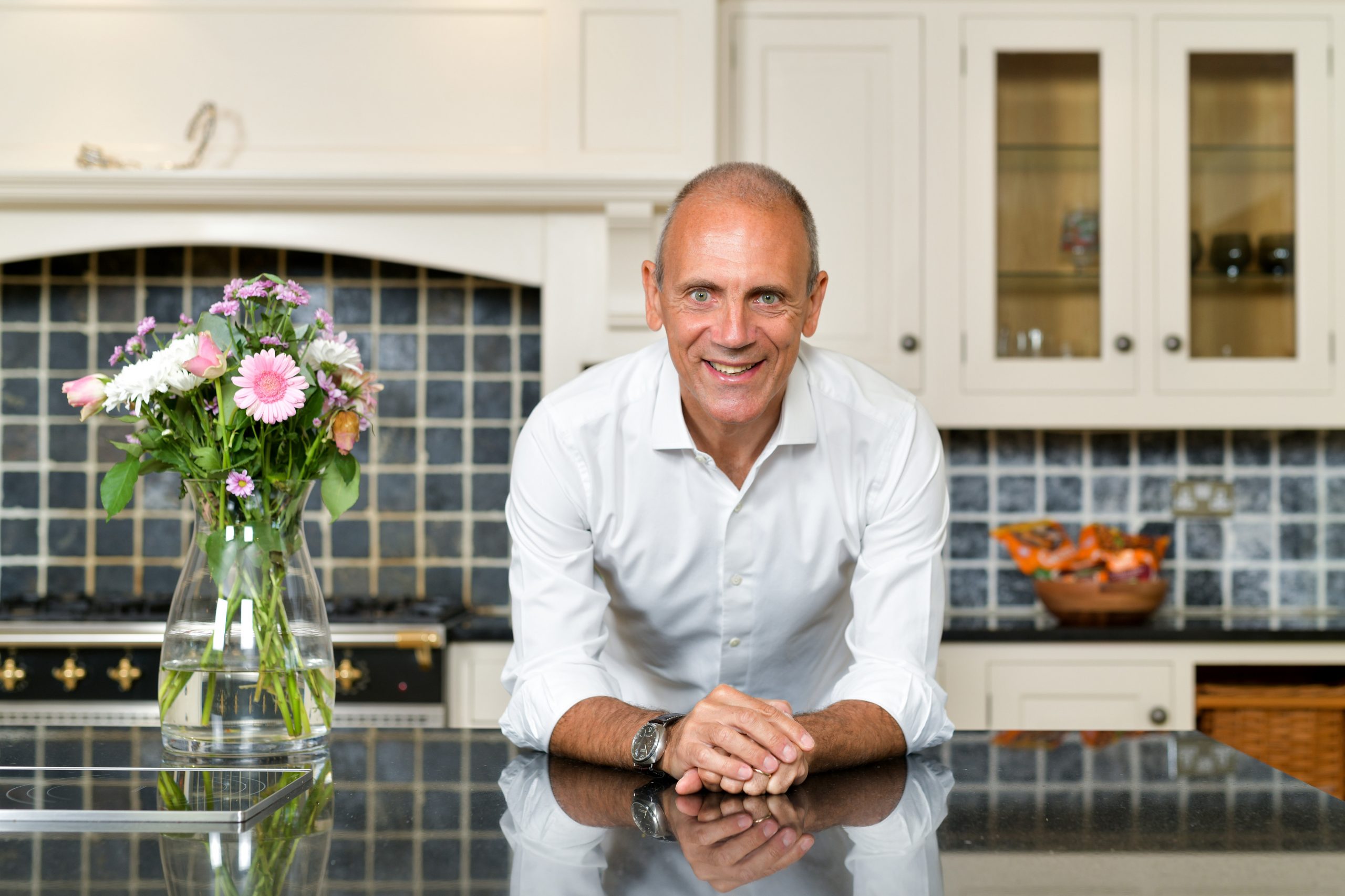He has a passion not only for food but also for healthy living - both physically and emotionally. He loves to run, to cycle and for him, what we eat is critical to living healthily.
Quorn Foods have been the pioneers of meat alternatives since the company began selling its first product in 1985. Quorn’s purpose has always been simple – to produce delicious food that is equally beneficial for our health and the environment – and they’ve built up a loyal customer base that continues to enjoy Quorn’s products in the UK and across the globe.
The company currently sells products across a series of global markets including the US, Netherlands and Scandinavia. Quorn Foods have big ambitions to feed even more people around the world, aiming of providing 8 billion Quorn servings a year by 2030 – one for every person on Earth.
Tell us a little bit about what exactly is in Quorn.
At the heart of our brand is a super-protein – called mycoprotein – which is a leading example of a sustainable and nutritious protein source for a growing global population.
We grow mycoprotein by fermenting a natural, nutritious fungus that is found in soil. Making mycoprotein uses 90% less land, water and carbon emissions than producing animal protein, so it is a great source of protein for the health of our planet.
Mycoprotein is a complete source of protein, high in soluble fibre and protein, low in total and saturated fat and contains no cholesterol. So, it is highly nutritious as well as sustainable – a true food for our future.
As more and more people consider becoming vegetarian or vegan, what are the environmental benefits of a meat-free diet?
The fact that over a quarter of global emissions come from food – with 14% from livestock alone – needs more attention. The climate crisis is pressing and, with 64% of consumers stating that they want to reduce their carbon footprint, food choices will undeniably be a big tool in tackling the climate crisis.
At Quorn we take pride in being ahead of our time; we’ve been encouraging meat reduction with our sustainable and nutritious protein since the 1980s. Earlier this year, we partnered with the Carbon Trust to become the first major brand to introduce carbon labelling to its products. By putting this data on our packaging, we want to empower consumers to make food choices based on their environmental footprint.
This is, of course, just the start of the process and we need brands to follow our lead to make a difference. We know that we cannot change the world alone, but if no-one starts, the world will never change.
The meat alternative market has skyrocketed over the past couple of years. Were you expecting this? How has Quorn managed this high demand?
Consumer interest in meat-free and vegan diets has been gaining momentum for some time now, especially during the ongoing lockdown periods, and it is great to see this movement growing from strength to strength.
Recent data we collected showed that 40% of Brits believe a diet lower in meat is better for the environment and 52% say that a meat-free day a week is better for the planet. As such, it is no surprise to see an increase in demand for vegetarian and vegan food. People want to make a difference to the planet and food is an accessible way of doing so.
Our sales at Quorn have reflected this, and we are continuously striving to meet this demand and provide our customers with new options to reduce the amount of meat in their diet. A huge aspect of this is convenience, and we have partnered with popular high-street brands such as KFC, Pizza Hut and Greggs to ensure people can find great-tasting meat-free options wherever they are.
The fact that over a quarter of global emissions come from food – with 14% from livestock alone – needs more attention.
With Quorn leading the ‘meat-free revolution’ in the UK, what do you do to ensure you stay ahead of the competition?
First and foremost, I want to state that this “revolution” is a collaborative effort. The growth of the meat-free market will ultimately have a positive impact on the planet – our wider brand mission – so we welcome more brands in joining us and providing choice for consumers.
We do have a strong heritage in the sector and subsequently, we have a responsibility to provide our loyal customer base with an ever-expanding range of products. We listen closely to their feedback and act accordingly. For example, we recently returned our Quorn Swedish Style Balls to supermarket shelves following a large number of requests via social media, and we are soon launching Quorn Fishless Scampi in response to our consumers asking us to expand our Fishless range
On top of this, we are constantly striving to bring new, innovative products to market and have recently strengthened our Culinary Innovation Team with the addition of five new chefs.
In your opinion, is sustainability critical for business success in today’s world?
As individuals and businesses, we all have a responsibility to react to the climate crisis and act sensibly for the future of our planet. Consumers are certainly becoming more conscious and demanding of brands to take responsibility for their carbon footprint.
Quorn is a company that was born out of sustainable values and, as a result, we have set some ambitious, industry-leading sustainability goals to drive our wider mission. By 2030, we commit to becoming a Net Positive company – which means we will put back more into society and the environment than we take – achieving Net Zero carbon status in our operations and serving 8 billion Quorn servings worldwide every year; that’s one for every person on Earth.
To drive these aggressive, yet achievable, goals forward, we have been innovative with our corporate structure and appointed Tongwen Zhao to the new role of Director of People and Planet. Tongwen’s role encompasses the responsibilities of HR and sustainability to create a culture in which activities around our people and the environment are inextricably linked.
Across the food and drink industry, we will encourage more of our peers to introduce carbon labelling to their packaging so that we can empower more consumers to make food choices based on the environmental impact.
Do you have any new exciting launches for Veganuary 2021?
With one in five Brits reducing their meat intake this year, according to data collected by The Vegan Society, we are anticipating a record-breaking Veganuary this year to build on the incredible landmark of recently hitting 1 million supporters.
Veganuary is a significant time of year for Quorn – in both awareness and sales – and in the past, we have had great success in launching partnerships with KFC and especially Greggs with the notorious vegan sausage roll.
This year we are gearing up to launch a new product range of our own to celebrate – called Makes Amazing – which we have created to celebrate how exciting and flavoursome everyday food can be.
What’s on your agenda for 2021 and what are your ultimate goals for Quorn and the meat-free market?
In 2021, we want to build on the UK’s rising enthusiasm towards meat-free products and continue encouraging people to make these small changes to their diets that can have a big impact on the future of our planet.
Across the food and drink industry, we will encourage more of our peers to introduce carbon labelling to their packaging so that we can empower more consumers to make food choices based on the environmental impact. This is an initiative we really believe in, and we need a collective effort for carbon labelling to fulfil its exceptional potential.
Ultimately, at Quorn and across all businesses, we want 2021 to be a year of solutions. Society is very aware of the climate issues we currently face as a planet, but now is the time to act. Every year is pivotal to our hopes of addressing the crisis before it’s too late and, in 2021, we encourage everyone to stand up and be counted for the future of both our people and planet.











